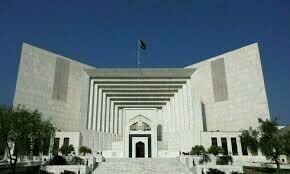 RAWALPINDI, May 29: Renowned writer and puppeteer Farooq Qaiser, known for his famous character ‘Uncle Sargam’, has blamed people’s declining interest in fine arts for the rise in terrorism and extremism.
RAWALPINDI, May 29: Renowned writer and puppeteer Farooq Qaiser, known for his famous character ‘Uncle Sargam’, has blamed people’s declining interest in fine arts for the rise in terrorism and extremism.
He was sharing his views with the students of National College of Arts (NCA) here on Thursday in a “Conversation with Farooq Qaiser a.k.a Uncle Sargam”, in the NCA series of programmes called ‘Spotlight’ designed to introduce distinguished personalities from the world of arts to the students of the college as well as the general audience.
Farooq Qaiser graduated from NCA, Lahore, in the 1970s and developed his interest in puppetry when he joined Muneeza Hashmi and Shoaib Hashmi in playing Bee Bathakh in Akkar Bakkar (1971-72), an adaptation of the American show, Sesame Street, which quickly became a roaring hit.
He informed the students that he had created puppets out of local materials, from bathroom mugs and foam mattresses. He once met Jim Hanson, one of the leading figures behind the Muppets and Sesame Street, and asked him how much he spent on his puppets. Farooq said he replied Rs80 to Rs100 and then he laughed and said that was how his crew could be paid.
He said that in a puppet show, the artist expressed his and the society’s suppressed thoughts and feelings.
He said that he loved hand glove puppets rather than rod puppets as working with glove puppets gave the physical proximity that was important to develop a rapport with the puppets, whereby the “puppet becomes an extension of the actor himself”.
The director-cum-actor said that his puppet characters were based on people he met in real life, developing characters from the voice and wit of the common folks.
Farooq Qaiser studied puppetry in Romania and came back to Pakistan to begin his own show Kaliyaan, which became an all time favourite through creation of characters like Uncle Sargam and Massi Museebte.
He said that Uncle Sargam was developed around the personality of his Romanian instructor.
He regretted that the Federal Capital of the country had no puppet theatre.
“Government should promote puppet theatre as puppets really engaged and delighted people, especially children, besides promoting awareness of social issues.”
Farooq Qaiser’s TV credits are numerous and he has won numerous prizes, including the President’s Pride of Performance Award (1992).
He said that he felt that nothing could equal the live experience of puppet theatre for children and adults.
He has been working with Pakistan National Council of the Arts (PNCA) as an assistant director of performing arts during its years of inception in 1970s and Deputy Director, museum, exhibition and design at Lok Virsa when the two organisations split into autonomous units in 1976.
He advised the students to come forward and play their role in promoting fine arts in the country to get rid of terrorism and extremism which were destroying the social fabric.
He said that when he started his career, only few girls attended the classes at NCA Lahore but now there were many girl students getting expertise in this field especially theatre and it was an encouraging sign.













































Dear visitor, the comments section is undergoing an overhaul and will return soon.